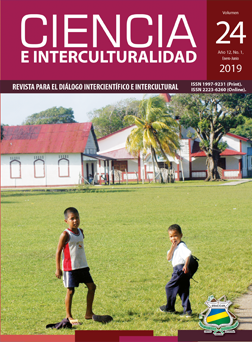Interculturality as a new object: Outline of a Transmodern Approac
DOI:
https://doi.org/10.5377/rci.v24i01.8006Keywords:
Interculturality, Historical Cultural Theory of Activity (CHAT), Expansive learning, Transmodernity, Postmodernity, ModernityAbstract
Interculturality is understood as the synthesis of contradictions between multiple expressions and cultural identities that cannot be separated from the old philosophical, and also political dilemma, which implies the discussion of modernity versus postmodernity. In this proposal, I argue that interculturality manifests itself in a problematic way in both matrixes of thought; in modernity for its totalizing common sense, and postmodernism by covering up a common frame of reference. Faced with this, I outline an approach linked to the thesis of transmodernity, where dialogue between equals would be possible, not as a charity, but as a demand of historically marginalized sectors. For the construction of this position, I mobilize the theoretical effort that is made from the Historical Cultural Theory of Activity (CHAT) to insert the psychological in a field of greater complexity: the intersubjective activity. I work with the hypothesis of expansive learning of the CHAT to characterize the intercultural as a new object of collective learning product of the collision between positions. Therefore, interculturality is a mobilizing idea that is developed progressively as a result of the learning and cultural dialogue management.
Downloads
1178
HTML (Español (España)) 461
EPUB (Español (España)) 212
Resumen (Audio) (Español (España)) 184
Abstract (Audio) 175
Downloads
Published
How to Cite
Issue
Section
License
Copyright © (URACCAN)

This journal is licensed under a Creative Commons Attribution-NonCommercial-NoDerivatives 4.0 International License.
This license allows others to download the works and share them with others, as long as their authorship is acknowledged, but they can not be changed in any way nor can they be used commercially.




